Vintage and Future Vintage
Silence Like Thunder is a studio space that features a highly curated selection of vintage and heirloom pieces.
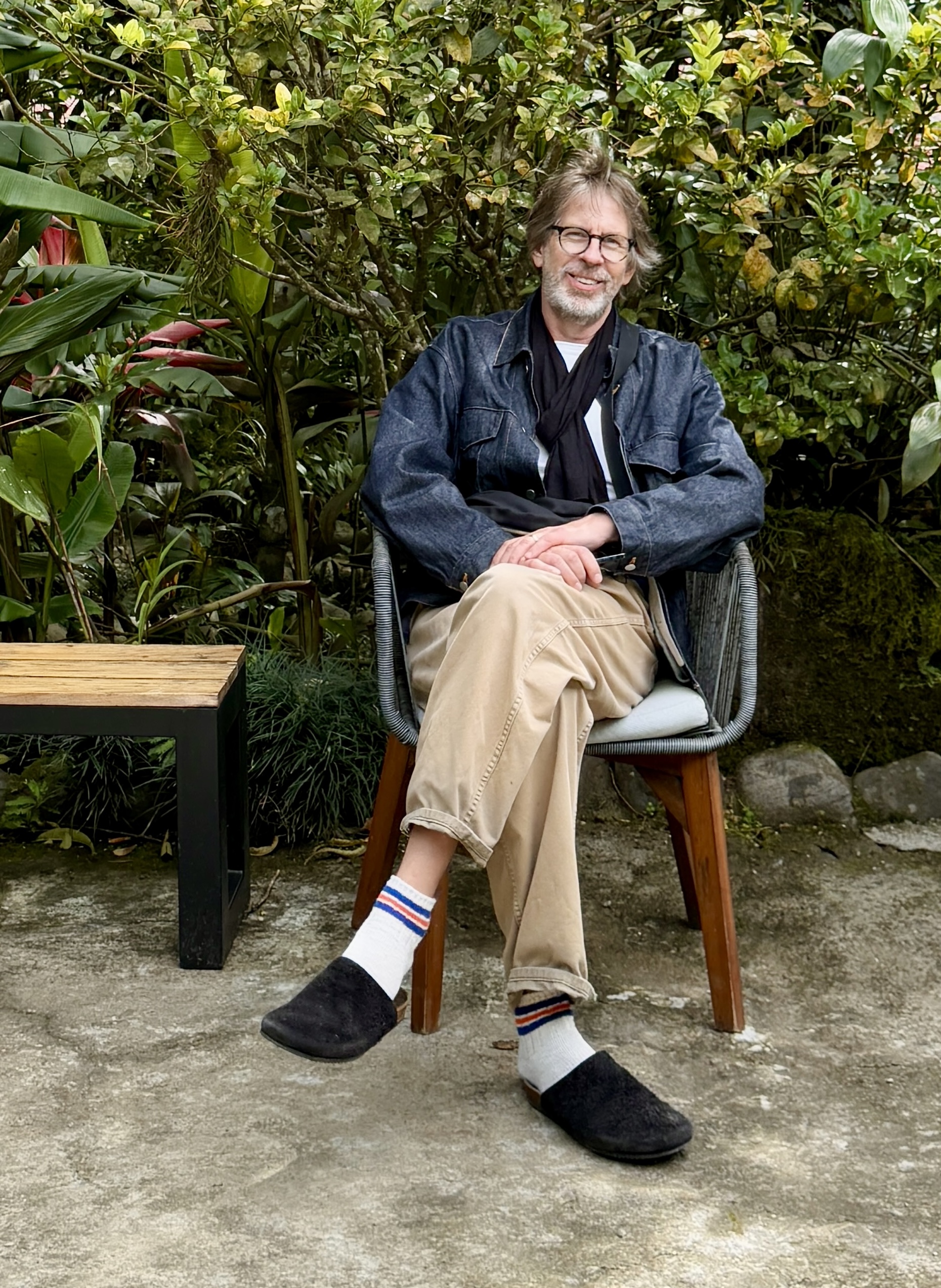
About
Our vintage philosphy and why silence like thunder.
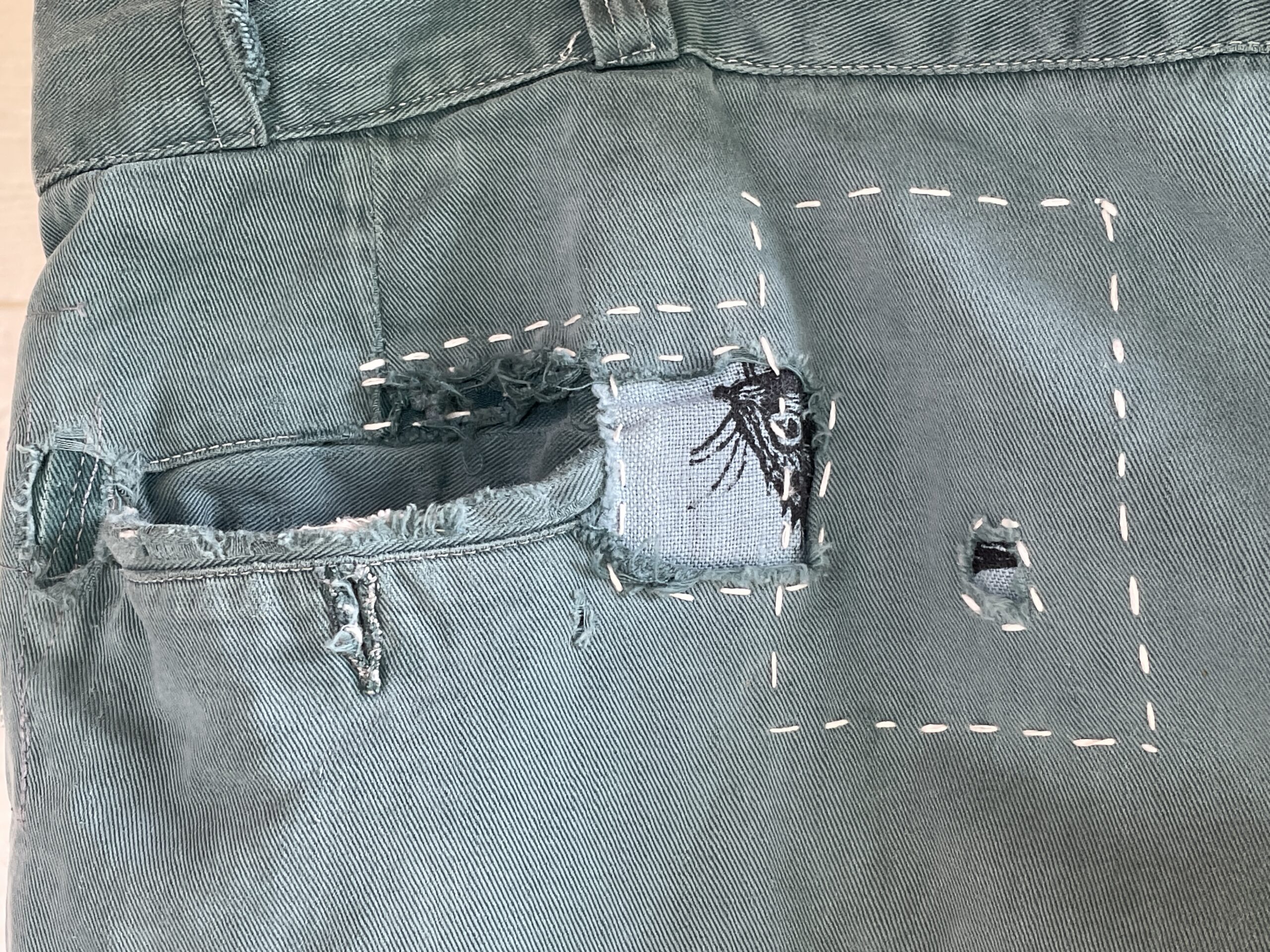
1950s Green Khakis
Oversized khakis with suspenders using vintage buttons and fabric.
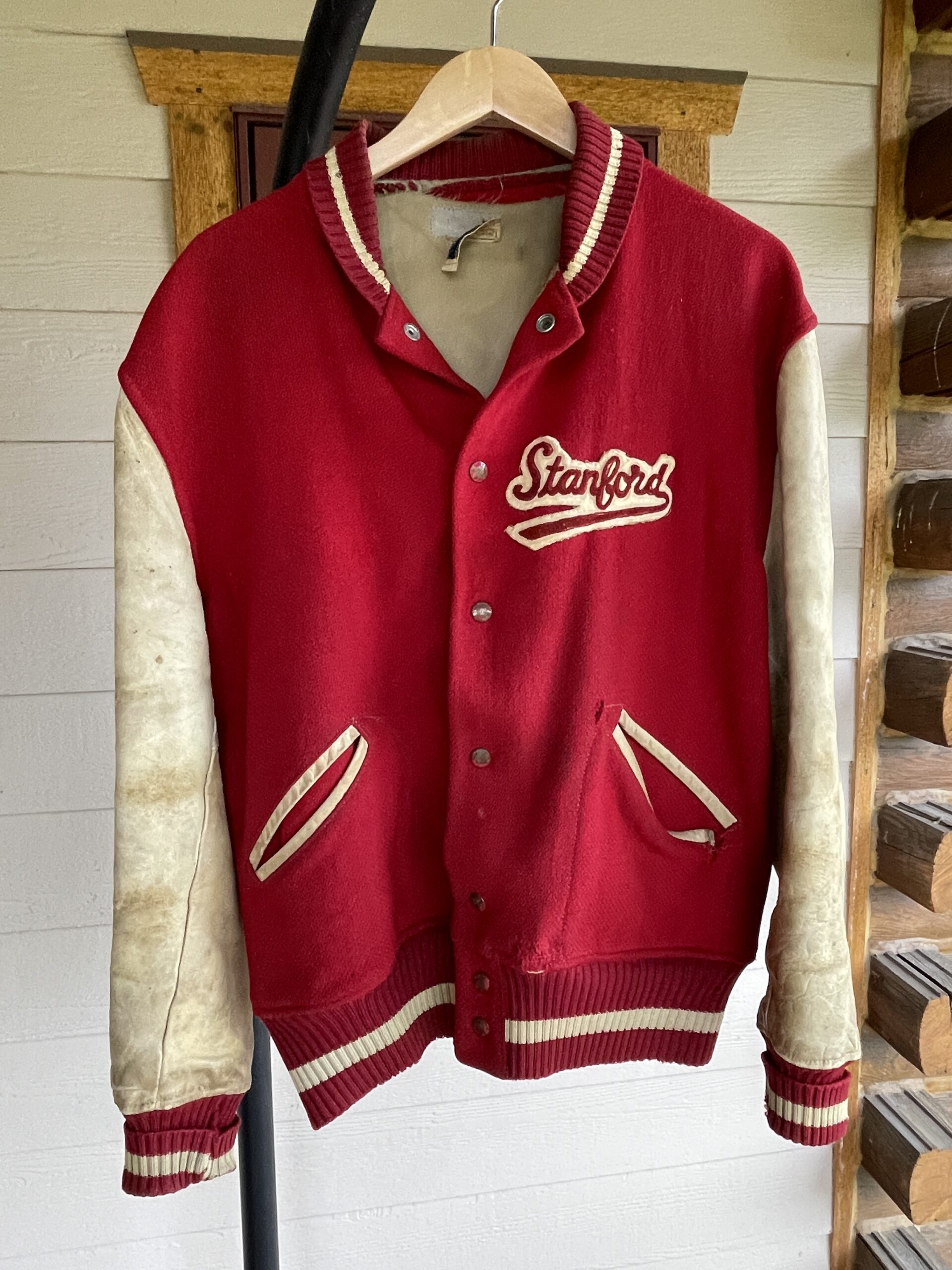
1960s Varsity Jacket
Darning project for vintage Stanford varsity jacket by HL Whiting.
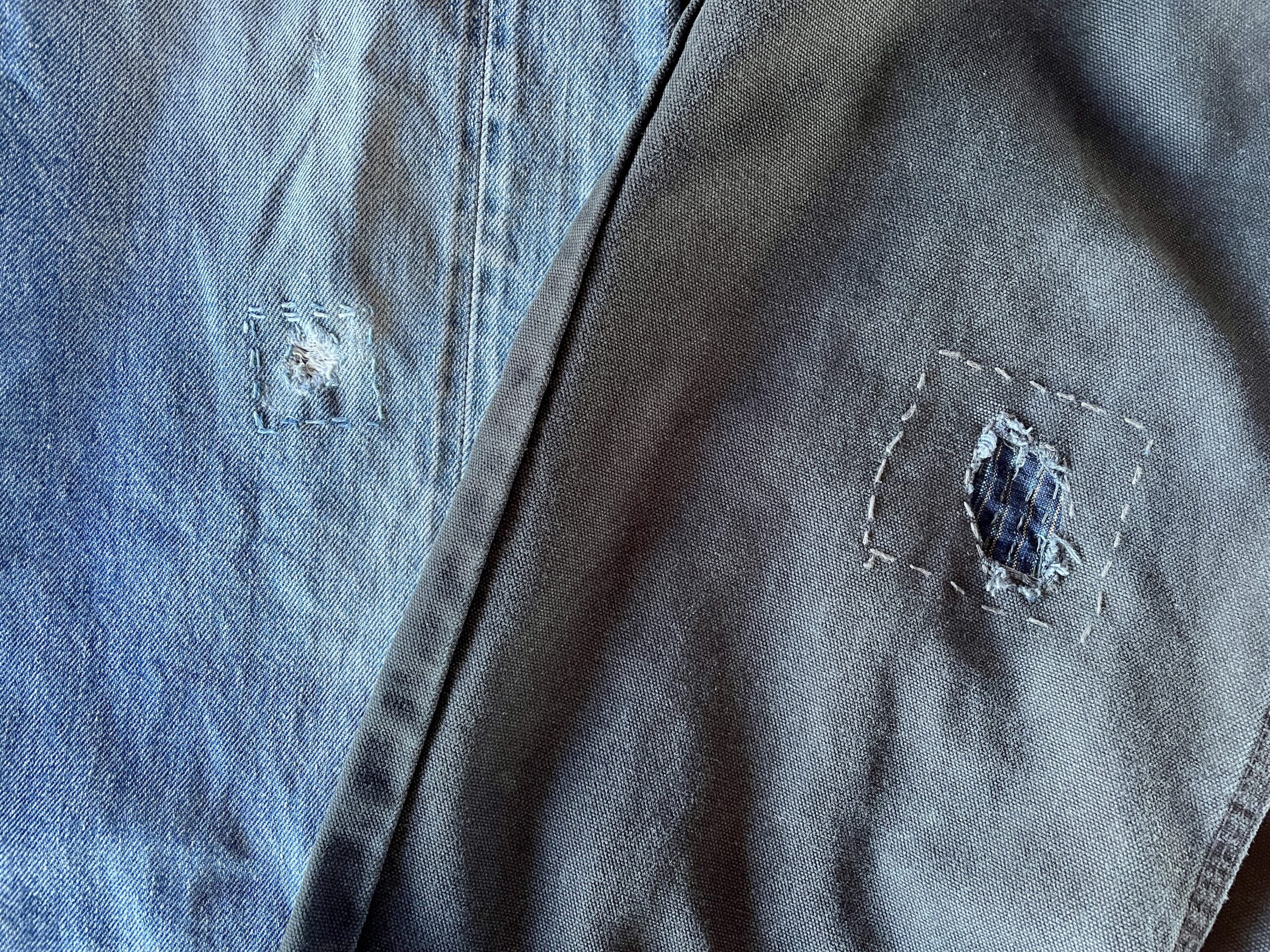
Sashiko Repair
Denim and workwear repair with sashiko stitching.
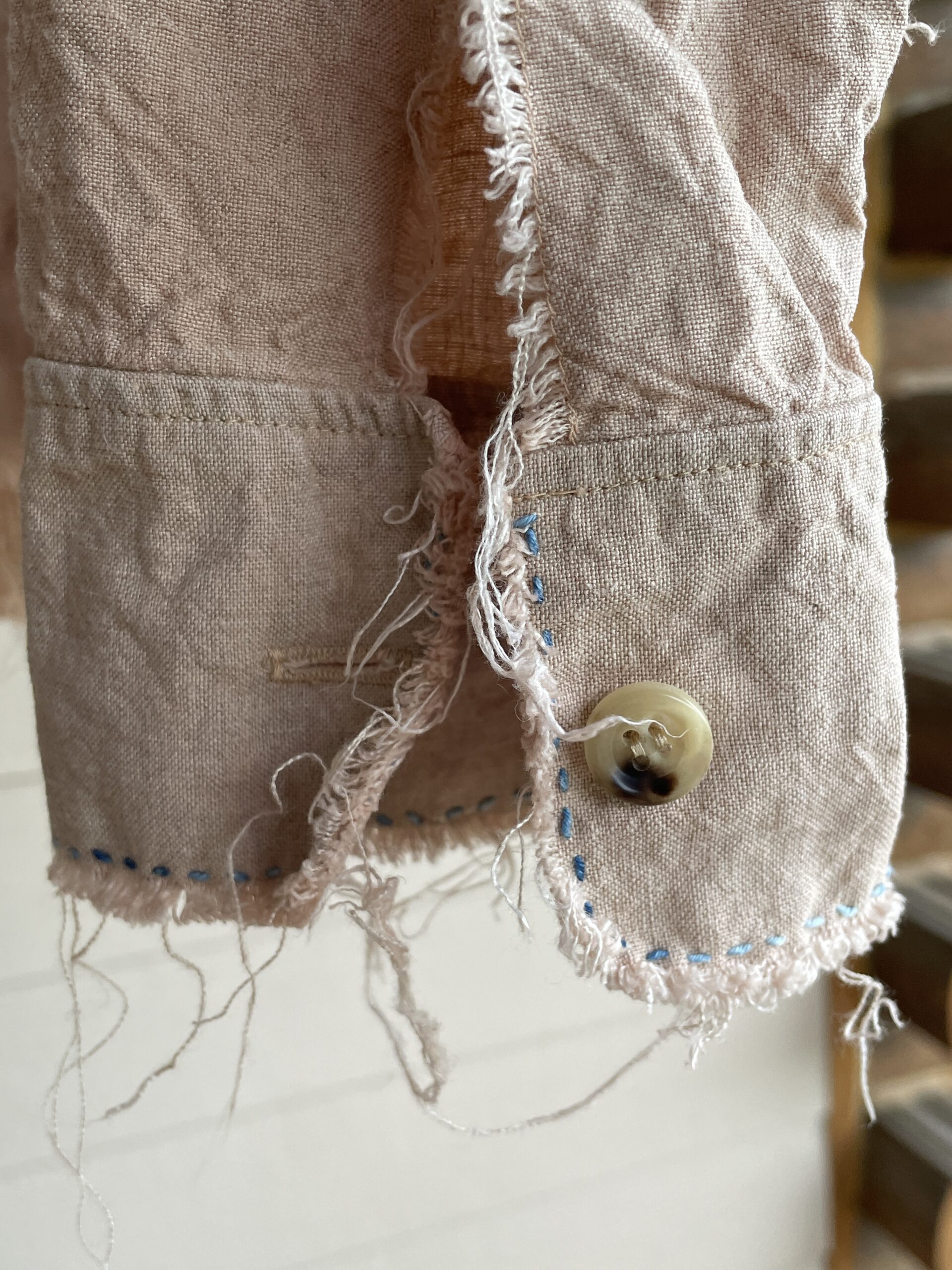
Elena Dawson Shirt
Stitching on sleeve to limit unraveling of raw edges.
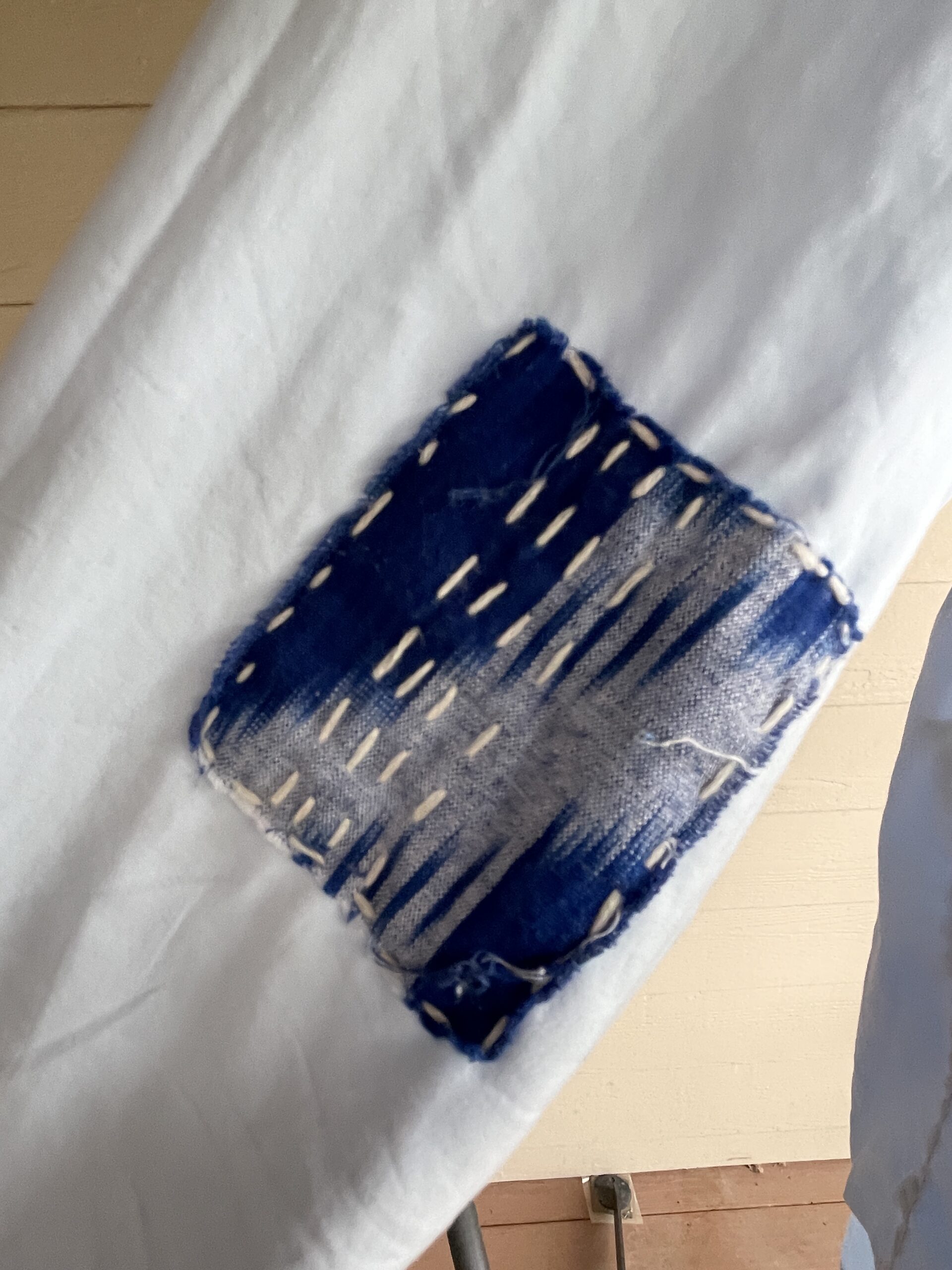
Casey Casey Shirt
Elbow repair using vintage Japanese fabric.